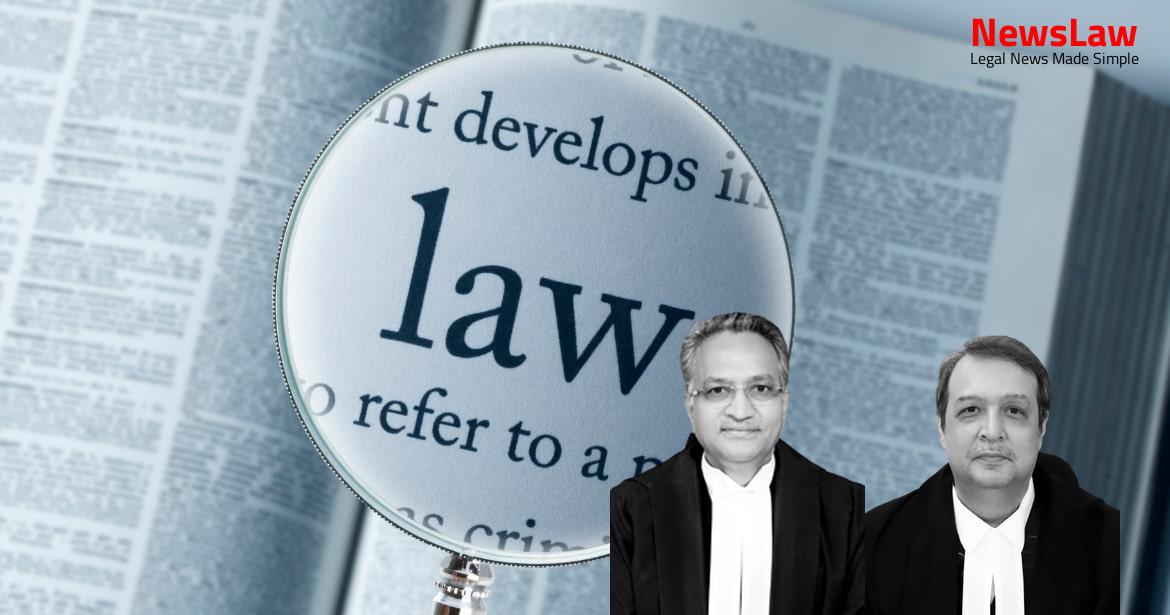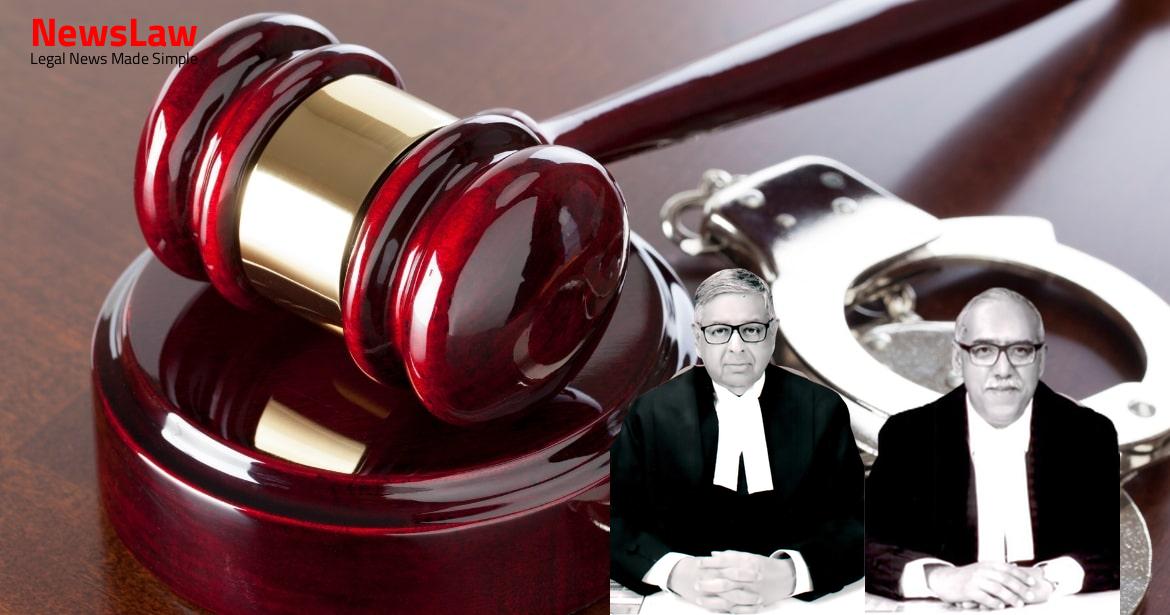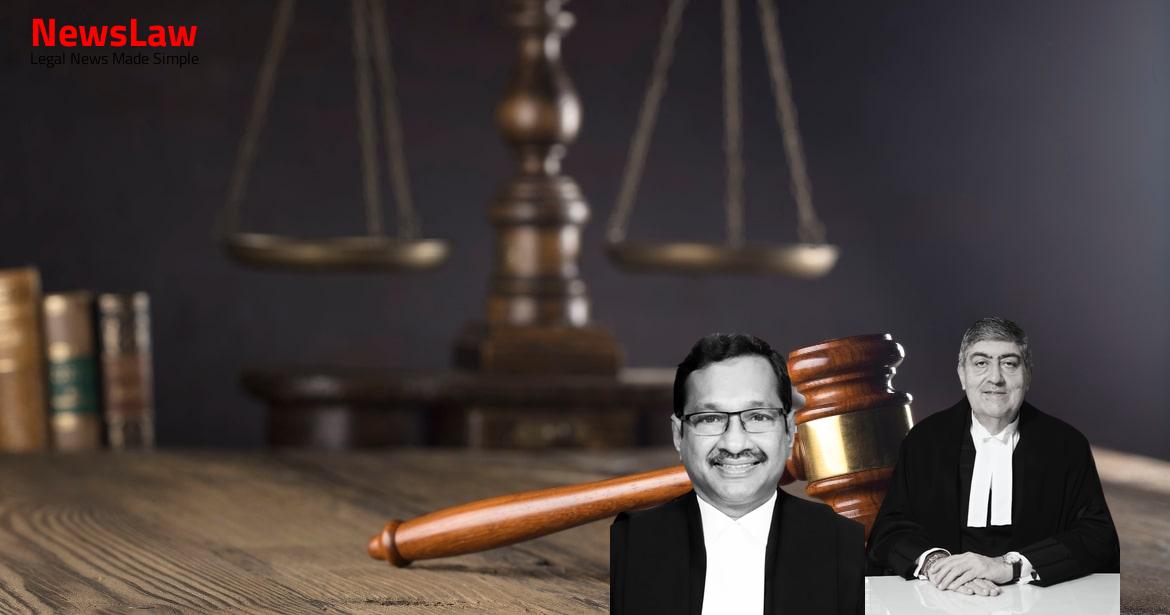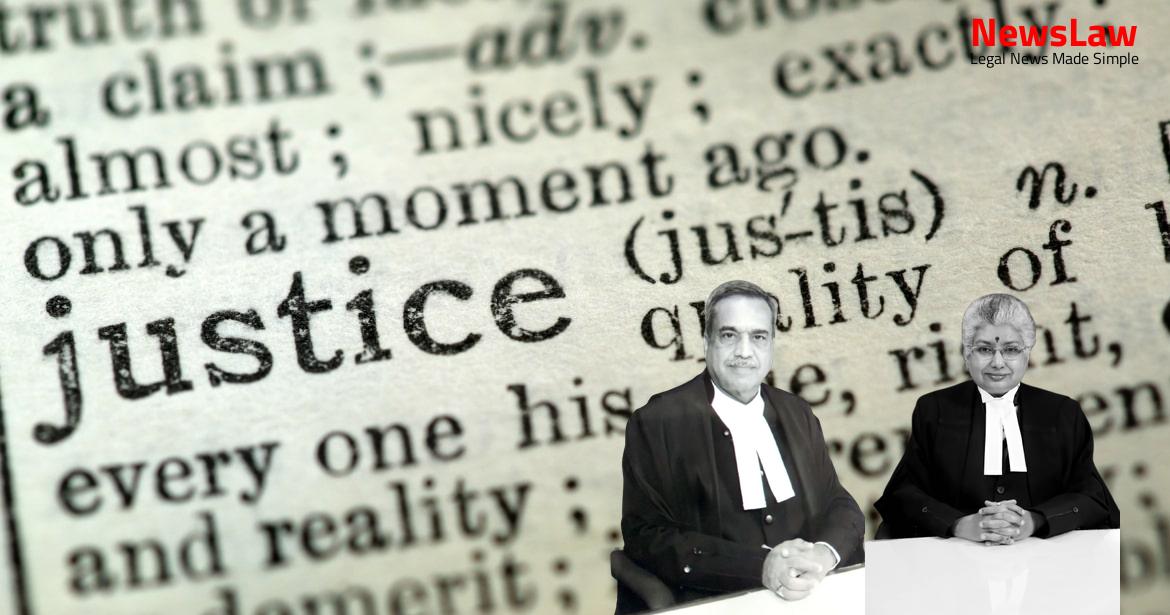Explore the intricate legal analysis conducted by the court regarding allegations and investigation procedures in a recent case. The court’s thorough examination of the evidence and application of legal principles sheds light on the complexities of the justice system. Stay tuned to unravel the court’s in-depth analysis. #LegalAnalysis #InvestigationProcedures #CourtJudgment
Facts
- The writ petitioners have alleged that the Chhattisgarh Police, SPOs, Salwa Judum activists, and Paramilitary Forces are responsible for the brutal massacre of tribals in various villages.
- The petitioners have requested the CBI to take over the investigation into the massacres that occurred on specific dates in 2009.
- Compensation has been sought for the victims and their families for extrajudicial executions, looting, property damage, and other losses.
- The petitioners have changed their allegations multiple times, including retracting the initial ‘hot oil theory’ claim.
- Contradictions and anomalies in the case of the petitioners have been highlighted, including discrepancies in complaints and statements.
Issue
- Four persons were stabbed with a knife and then shot with bullets.
- The firearm used in the killing is not described as either a big gun or a pistol.
- The incident occurred when individuals from the jungle attacked the victims.
Arguments
- The reliefs prayed in the petition were to halt security force operations and grant legal protection to Left Wing Extremists as victims.
- Petitioner’s averments were false and fabricated, aimed at misleading the court and obtaining orders through fraud.
- The false averments sought to portray armed Left Wing Extremists as innocent victims, misleading the court and affecting security forces’ morale.
- The modus operandi of filing false petitions to benefit from Left Wing Extremism and obtain protective court orders has become a norm.
- The petition’s purpose was to derail security forces’ efforts to neutralize Left Wing Extremists, portraying security forces negatively.
- Accusations of barbarianism against security forces were proven false.
- The petitioners were accused of levelling false charges and fabricating evidence in judicial proceedings.
- The Union of India wanted appropriate action against the petitioners for perjury and false charges.
- The petitioners’ claims of brutal incidents were refuted, calling for investigation through the CBI.
- The need for a fair investigation process through CBI was emphasized, allowing legal representation and ensuring no external influence on witness statements.
- The respondents, represented by Mr. Mehta, argue that the petitioners have levied false charges against the security forces to defame them and disrupt operations.
- They claim that the allegations made in the writ petition are false and fabricated, denying any involvement of their troops in the reported atrocities.
- Mr. Mehta highlights instances of brutal killings of police forces by Naxalites over time, indicating a biased motive behind the petition.
- It is suggested that the petitioners, especially the NGO-backed petitioner no.1, have conspired to undermine the morale of the security forces battling Naxal terrorism.
- The respondents assert that entertaining such motivated petitions could have disastrous consequences for the forces and the nation’s security.
- The petitioners are accused of not only fabricating crimes but also attempting to cover up and shield actual offenders of Naxal terrorism.
- The allegations against the security personnel are described as scurrilous, with the other petitioners being characterized as rustic and illiterate tribals.
Also Read: Supreme Court Judgment:
Supreme Court Upholds Benefit of Input Tax Credit in Uttar Pradesh Value Added Tax Act 2008
Analysis
- Proper investigation is not being done based on the writ petition.
- No case for further investigation or re-investigation has been established.
- No pending proceeding is required for Section 195(1)(b) to apply.
- Prima facie fit case for CBI investigation has not been established.
- FIRs were investigated by concerned agencies and charge sheets were filed in courts.
- Dispute over police responsibility for disappearance of petitioners 2 to 13.
- No opinion expressed on the disappearance issue, waiting to hear petitioners’ version.
- Interest of justice requires production of petitioners 2 to 13 in court.
- An aggrieved person can only claim a proper investigation of the alleged offence, without the right to choose a specific investigating agency.
- Enquiries under Section 340(1), Cr.P.C., are to determine if a prima facie case exists for the specified offence and if investigation is expedient in the interest of justice.
- The necessity of preliminary inquiry under Section 340 of the CrPC and the scope of such inquiry have been questioned and referred to a larger Bench for consideration.
- Pritish v. State of Maharashtra emphasized that a deliberate false statement based on unimpeachable evidence is crucial for an offence under Section 199 of the IPC.
- Initiating proceedings for perjury should only be in exceptional circumstances with substantial grounds, and the court’s opinion is vital before filing a complaint.
- The power to transfer investigations to an independent agency like the CBI must be exercised sparingly and in exceptional situations to maintain credibility and ensure justice.
- Circumstances for directing a CBI investigation should be carefully evaluated, and the decision must instill confidence in justice and aim for complete inquiry.
- The court’s role in initiating proceedings or transferring investigations should be based on solid evidence of a deliberate falsehood and the need for a fair investigation.
- Section 195 of the Code of Criminal Procedure, 1973 specifies the punishment for intentionally giving false evidence in a judicial proceeding.
- Before a complaint can be filed against a person for providing false evidence, two conditions must be met: the person must have given false evidence in court, and the court must deem it necessary for an inquiry in the interest of justice.
- Section 340 outlines the procedure for cases mentioned in Section 195, which includes conducting a preliminary inquiry, recording findings, and making a written complaint to a Magistrate.
- The definition of ‘inquiry’ and the process of filing a complaint under Section 340 are detailed to ensure fair treatment of the accused.
- Section 211 of the Indian Penal Code defines the offence of falsely charging a person with intent to cause harm, outlining the essential elements for invoking the section.
- An application by the Union of India seeks an inquiry into false charges and fabricated evidence presented before the Court with malicious intent.
- The need to prevent unjust false accusations against security personnel is emphasized in the context of upholding justice and truth in legal proceedings.
Decision
- The Registrar Judicial will convey the order to the District Judge immediately.
- Statements recorded by the Judicial Officer following court directions discredit the case of the first writ petitioner.
- The District Judge is requested to record statements of the petitioners in the presence of an interpreter and ensure their safety while in Delhi.
- Direction given to the Union of India to comply with safety instructions issued by the District Judge.
- Petitioner No.1 is directed to pay costs, failing which legal actions may be taken for recovery.
- Petitioner Nos. 2 to 13 to be produced in court on 15th February, 2010 for further hearing of the petition.
- Magistrate to conduct trial if plea is not guilty, inquiry to continue until then.
- Rejection of the writ petition with exemplary costs of Rs. 5,00,000/- (Rupees Five Lakh Only).
Case Title: HIMANSHU KUMAR Vs. STATE OF CHHATISGARH (2022 INSC 720)
Case Number: W.P.(Crl.) No.-000103-000103 / 2009



